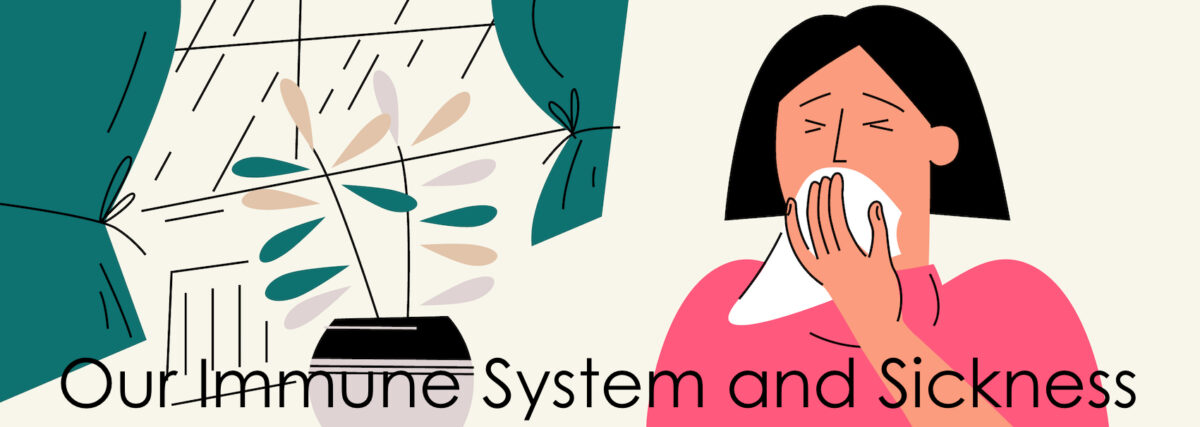Todays post is about the Immune System.
This past week I have been resting, letting my body and immune system work through a virus.
This one really crept up on me. Most of us usually feel when we are becoming unwell. We feel achey, maybe get headaches or a ‘heavy head’. Usually this is what happens to me. Well, this time I didn’t see it coming.
The previous week, I had been very busy, I worked more hours than usual. I had appointments to attend and other projects to complete. I was feeling tired, but that was to be expected after my busy week. Or so I thought.
So, ending up in bed late last Sunday night with a fever, was a surprise. Not a nice one either. This got me thinking about how we get sick.
I had been quite confident that I was healthy, with a fairly good immune system. So, what let me down?
In hindsight, stress and lack of quality sleep. Not giving my body, and my immune system, enough time to recover.
The Immune System
The immune system is one of the hardest working mechanisms in the human body. What many people may not realise is that the body actually has two immune systems: the innate (or primary) system and the adaptive (or long-term) system.
When a possible threat from an illness-causing invader is detected, the innate system, is alerted to respond to the threat.
However, many people have a lowered immune system that can cause the innate system to work harder than it needs to in protecting the body.
So when that system has to work harder, we have less energy and in many cases, an overwhelming feeling of fatigue and feeling really tired.
The 4 most Common Causes of Lowered Immune System are
- Stress. Nearly all of us have felt the effects of stress at some point in our lives. Headaches, pounding chest pains, uneasiness and an overall tense feeling are hallmarks of stress. These factors all combine to cause the immune system to have to work harder to defend the body against threats to health.
- Lack of sleep.You may not realise it, but while you’re sleeping the cells in your blood that fight infections are working to keep infections at bay. So lack of sleep and fatigue can leave your defence system weak.
- Not enough exercise. Your body’s defences will likely not be at their best if your lifestyle is too sedentary.
- Improper nutrition, Fats, particularly polyunsaturated fats, tend to suppress the immune system. Also be on the lookout for the consumption of too much sugar, which can inhibit the process by which white blood cells work to destroy viruses and bacteria.
So while our immune system is struggling with keeping up with our busy lives, it is left open to attack. It now has a diminished ability to fight off the germs and viruses that can lead to colds, the flu and other threats to our well-being.
This is information that a lot of us already are aware of, however, our lives get so busy that it’s easy to forget.
It’s a shame we have to become ill to remember it all again.
Until the next post, take time to rest and
Live Clean n Prosper



